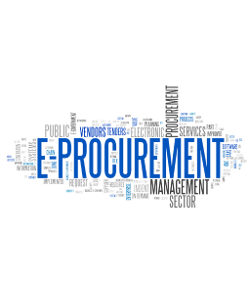Special topics
 Technology has advanced the style of communication and strategic customer service globally. This change is gradually catching up with developing economies like Ghana, especially with the country’s extractive industry.
Technology has advanced the style of communication and strategic customer service globally. This change is gradually catching up with developing economies like Ghana, especially with the country’s extractive industry.
The Petroleum Commission of Ghana established under the legislative Act of Parliament, Act of Parliament, 2011 (Act 821) as a result of hydrocarbon discoveries in commercial quantities, to regulate and manage the utilisation of petroleum resources and, coordinate the policies in the upstream petroleum sector. It is also an agency under the Ministry of Energy.
Key mandate of the commission among the many is to promote, regulate and manage the efficient conduct of upstream petroleum operations. Over the years, the commission procurement and tendering process has often been questioned in many transparency test. In 2016, the Chief Executive Officer of the Commission engaged in a fierce argument, concerning transparency.
Summarily, the Petroleum Exploration and Production Act 2016 (Act 919) offers the Minister of Energy to undertake direct negotiations under two circumstances on behalf of the nation. The Act mandates the minister to the use his or her discretion to determine where an area offered for a public tender does not become subject to a petroleum agreement. Furthermore, the Act allows the minster in consultation with the Petroleum Commission to determine direct negotiations to ensure the most efficient and optimal exploitation of petroleum in a particular area.
However, the minister’s role of discretion in negotiation was clearly explained in 2016 that it can be checked and monitored by disclosing the invitation to tender or the invitation for direct negotiations in the Gazette as well as publishing it in two state newspapers for citizens to have access.
Open data is key to ensuring an oversight role of citizens as well as media over the extractive resource and revenue. The use of digital tools is key to ensuring transparency and accountability in the extractive sector and the country as a whole. Currently the commission is at the verge of deploying an electronic procurement and tendering platform for easy service provision as well as monitoring. Boldly written at the front end of the commission’s official website is ‘E-PORTAL, COMING SOON’’.
The ePortal is an electronic repository containing documents such as procurement plans, upcoming tenders, lists of registered companies and so on. The repository is secured and is only accessible externally by companies registered with the Petroleum Commission.
To gain access, individuals, companies and organisations are expected to follow steps indicated on the Commission’s website. The two step registration allows for quick registration, but we ask why is it accessible externally by registered companies? How will citizens get to see and know the list of companies and procurement processes done?